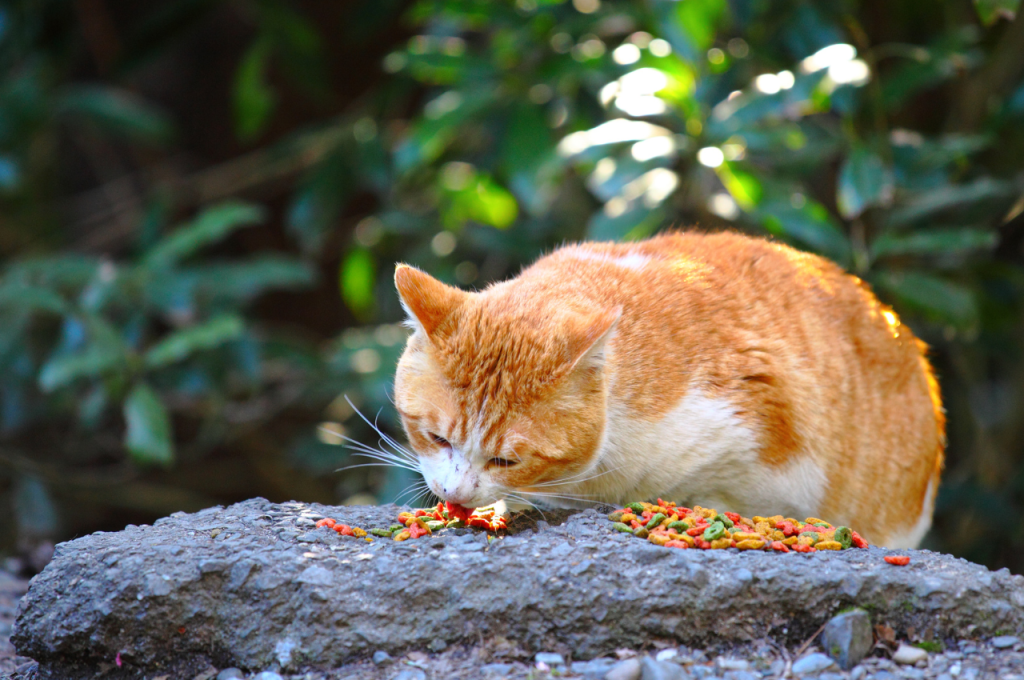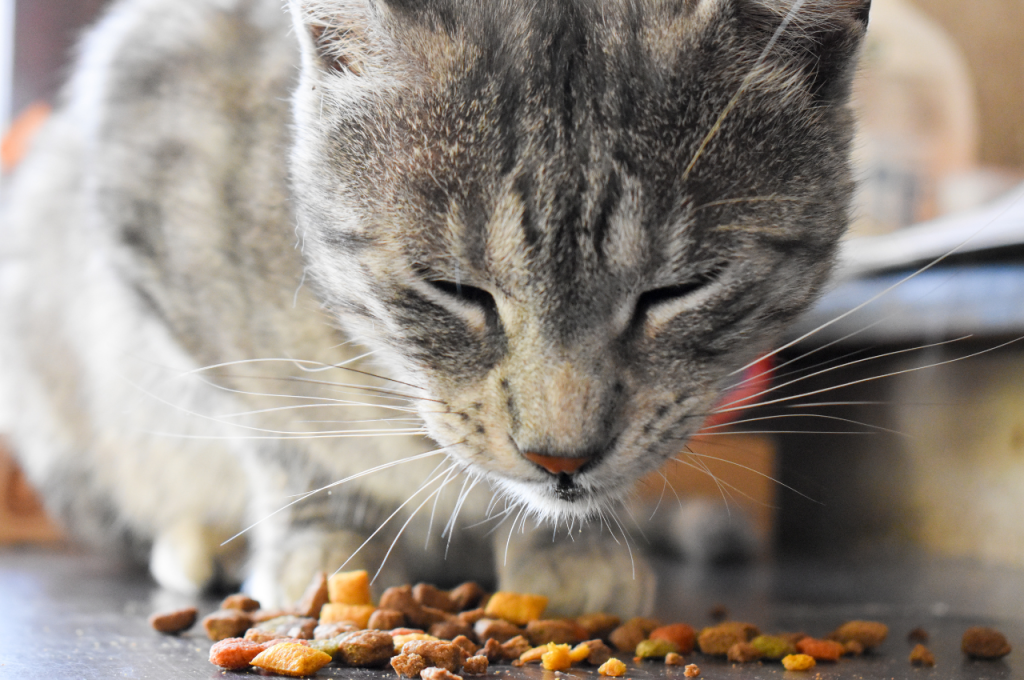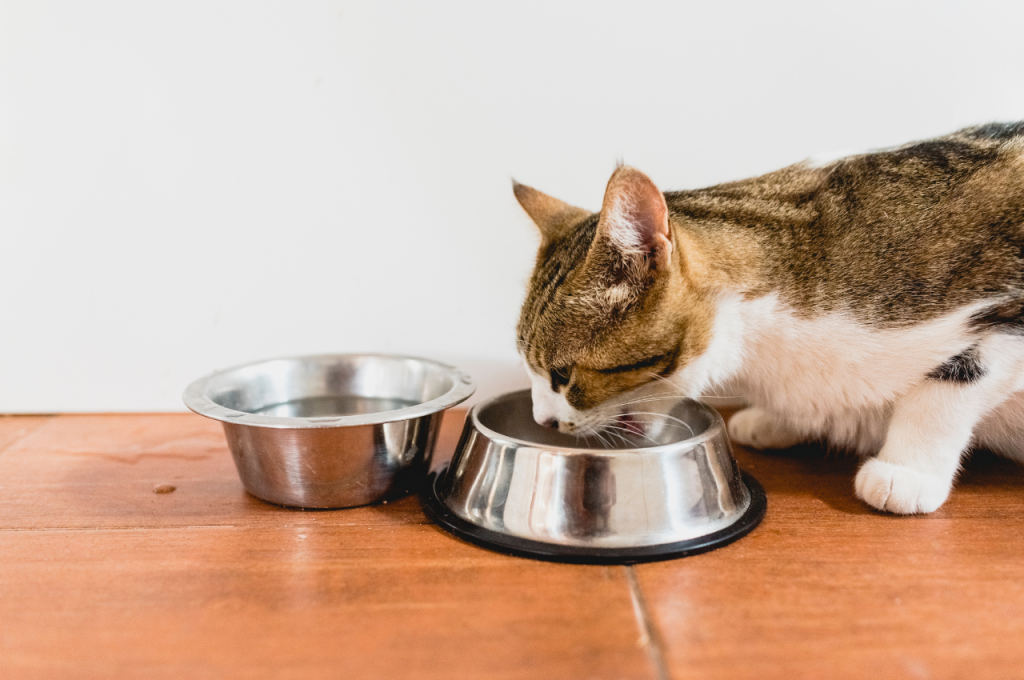When it comes to feeding our feline friends, it’s important to provide them with a balanced diet that meets their nutritional needs. But have you ever wondered if sweet potatoes are good for cats? You may be surprised to learn that these tasty tubers can be a healthy addition to their diet.
Sweet potatoes are not only delicious but they are also packed with nutrients that can benefit your cat’s overall health. They are a great source of dietary fiber, which helps support healthy digestion. Additionally, sweet potatoes are rich in essential vitamins and minerals, such as vitamin A, vitamin C, and potassium, all of which are important for your cat’s immune system, vision, and heart health. Including a small amount of cooked, mashed sweet potato in your cat’s meals can provide them with some extra nutrition and variety.
However, cooking the sweet potato thoroughly before offering it to your cat is important. Mash it and serve it as an occasional treat, making sure to avoid adding any seasoning or additives. As with any new food, introduce sweet potato gradually and monitor your cat’s reaction.
The Nutritional Benefits of Sweet Potato for Cats
Sweet potatoes are a popular and nutritious vegetable enjoyed by humans around the world. But what about cats? Can they enjoy the same benefits from eating sweet potatoes? In this article, we will explore whether sweet potatoes are good for cats and discuss their nutritional benefits.

First and foremost, sweet potatoes are a rich source of dietary fiber. This is beneficial for cats as it helps regulate their digestive system, preventing constipation and promoting regular bowel movements. Additionally, the fiber content in sweet potatoes can help manage your cat’s weight by promoting a feeling of fullness without adding excessive calories. This is particularly important for overweight cats or those prone to weight gain.
Sweet potatoes are also packed with essential vitamins and minerals that contribute to your cat’s overall health. They are a great source of vitamin C, which helps boost the immune system and protect against diseases. Additionally, sweet potatoes are high in vitamin A, which is important for maintaining healthy skin, coat, and vision in cats. They also contain vitamin B6, which supports brain function and the production of red blood cells.
In terms of minerals, sweet potatoes are rich in potassium, which helps regulate blood pressure and promotes healthy heart function. They also contain manganese, which plays a role in metabolizing carbohydrates and maintaining strong bones. Furthermore, sweet potatoes provide antioxidants that can help protect your cat’s cells from damage caused by free radicals.
Overall, sweet potatoes can be a nutritious addition to your cat’s diet. However, it’s important to note that they should be fed in moderation and prepared appropriately. Too much sweet potato can lead to digestive upset or an imbalance in your cat’s diet. It’s always best to consult with your veterinarian before introducing any new food to your cat’s diet to ensure it’s suitable for them.
Potential Benefits for Cats
While cats are obligate carnivores and primarily require meat-based diets, small amounts of certain vegetables can be beneficial as occasional treats or supplements. Sweet potatoes can provide cats with additional fiber, which aids in digestion and may help prevent constipation. The vitamin A content in sweet potatoes also supports eye health and immune function in cats.
How to Incorporate Sweet Potatoes into Your Cat’s Diet
If you decide to introduce sweet potatoes into your cat’s diet, it’s essential to do so gradually and in small amounts. This allows your cat’s digestive system to adjust and helps prevent any potential digestive issues.

Here are a few ways you can incorporate sweet potatoes into your cat’s meals:
- Cooked and mashed: Cook a small sweet potato, mash it, and mix it with your cat’s regular food. Ensure that the sweet potato is plain and free from any seasonings or additives.
- Baked sweet potato slices: Cut a sweet potato into thin slices, lightly coat them with olive oil, and bake them until they become soft and chewy. Let them cool before giving them to your cat as an occasional treat.
- Sweet potato puree: Blend cooked sweet potatoes with a small amount of water or low-sodium chicken broth to create a puree. You can drizzle this over your cat’s regular food as a flavor enhancer.
- Commercial cat food: Some cat food brands offer products that contain sweet potatoes as an ingredient. These can be a convenient option if you prefer to feed your cat commercially prepared food.
Remember to introduce sweet potatoes gradually and monitor your cat’s response. If you notice any digestive issues or other adverse reactions, discontinue feeding sweet potatoes and consult with your veterinarian.
Potential Risks and Considerations
While sweet potatoes can offer nutritional benefits to cats, it’s important to be aware of potential risks and considerations:

- Allergies or sensitivities: Some cats may be allergic or sensitive to sweet potatoes. Watch for any signs of allergic reactions such as itching, vomiting, or diarrhea. If your cat displays these symptoms after consuming sweet potatoes, discontinue feeding them and consult with your veterinarian.
- High carbohydrate content: Sweet potatoes are relatively high in carbohydrates compared to other vegetables. While carbohydrates are an important energy source for cats, a diet high in carbohydrates may not be suitable for all cats, especially those with certain health conditions such as diabetes.
- Avoid seasonings and additives: When preparing sweet potatoes for your cat, it’s crucial to avoid adding any seasonings or additives. Many seasonings and spices such as onion, garlic, and salt can be toxic to cats.
- Balanced diet: Sweet potatoes should be offered as a supplement to a balanced and complete cat diet. They should not replace the essential nutrients provided by commercially prepared cat food.
Conclusion
Sweet potatoes can be a nutritious addition to your cat’s diet, providing valuable fiber, vitamins, minerals, and antioxidants. However, it’s important to introduce them gradually, in moderation, and consult with your veterinarian to ensure they suit your cat’s specific dietary needs. Always monitor your cat’s response and discontinue feeding sweet potatoes if any adverse reactions occur.
Remember, a balanced and complete cat diet should be the foundation of their nutrition, and sweet potatoes should serve as a supplement rather than a primary food source.
